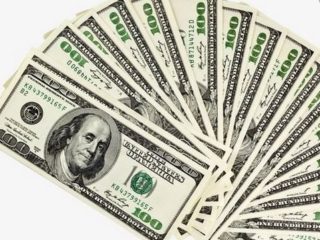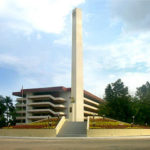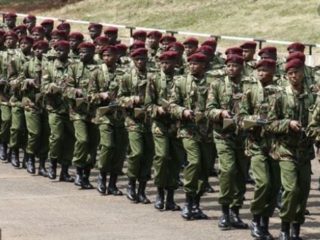The University of Sydney is one of the best Universities in Australia. Bachelor of Economics is among courses offered at the institution, and the course has several majors.
| Course Code | DH064 |
| Course Type | Undergraduate |
| Credit Points Required | 144 |
| CRICOS code | 0033366 |
This three-year (full-time) course is the leading undergraduate economics degree in Australia and has produced outstanding graduates including the current Governor of the Reserve Bank of Australia. The program will provide you with a comprehensive understanding of the overall context of business and government, and the high-level technical skills to analyse economic and social data and events. It will equip you to develop economic and social policy, and provides key capabilities for those who want to work in fields such as financial markets, business, banking, and consulting in both the private and public sectors.
The specialist program will provide you with an excellent grounding in economic theory and business statistics and will allow you to complete a major in economics, agricultural economics, environmental and resource economics, financial economics or the more statistically based econometrics. You can also combine your study with additional majors and electives in any area of arts and social sciences, the University of Sydney Business School or from one of the many faculties throughout the University.
Please Note: the following information applies only to students who commenced their degree from 2011 onwards. Students who commenced prior to 2011 should refer to the University of Sydney Business School website.
Requirements
- 144 credit points in total, comprising of:
- a minimum of 96 credit points from the School of Economics or The University of Sydney Business School, which must include a major in Agricultural Economics, Economics, Econometrics, Environmental and Resource Economics or Financial Economics; and
- A maximum of 48 credit points from either the Faculty of Arts and Social Sciences or other Faculties of the University as permitted by individual Faculty resolutions;
- A maximum of 60 junior credit points
Core units of study
Junior units of study (24 credit points)
ECON1001 Introductory Microeconomics
ECON1002 Introductory Macroeconomics
ECMT1010 Introduction to Economic Statistics
ECMT1020 Introduction to Econometrics
Senior units of study (12 credit points)
ECOS2001 Intermediate Microeconomics; OR ECOS2901 Intermediate Microeconomics Honours
ECOS2002 Intermediate Macroeconomics; OR ECOS2902 Intermediate Macroeconomics Honours
Majors and Electives
Students enrolled in the Bachelor of Economics must complete a core major in at least one of Agricultural Economics, Economics, Econometrics, Environmental and Resource Economics or Financial Economics. For information on the requirements of each major please refer to the undergraduate majors.
Students can choose to complete an optional second major from:
- the list of core majors for this degree
- the University of Sydney Business School (see list below)
- the Faculty of Arts and Social Sciences Table A or from another faculty (subject to approval from the School of Economics and the faculty of intended study)*
In most cases, a major in these subject areas requires the completion of at least 36 credit points in senior (or intermediate and senior) units of study (usually six units). Students should note that the exact requirements differ between subject areas and Faculties. Senior units of study may only be counted towards one major.
* A maximum of 48 credit points in units of study (both junior and senior) from outside the School of Economics and University of Sydney Business School may be selected in the Bachelor of Economics (arranged as either a major or as electives).
The following list displays the subject areas from The University of Sydney Business School available for students enrolled in the Bachelor of Economics:
- Accounting
- Business Information Systems
- Commercial Law
- Finance
- Industrial Relations and Human Resource Management
- International Business
- Management
- Marketing
- Quantitative Business Analysis
Pathways
There are many ways to structure the Bachelor of Economics degree. Below are a number of examples.
Pathway 1: Major in Economics
| Credit Points | ||||||
| Year 1 | S1 | ECON1001 Introductory Microeconomics |
ECMT1010 Business and Economic Statistics A |
Junior (major or elective) SoE OR BS | Junior (major or elective) | 24 |
| S2 | ECON1002 Introductory Macroeconomics |
ECMT1020 Business and Economic Statistics B |
Junior (major or elective) SoE OR BS | Junior (major or elective) | 24 | |
| Year 2 | S1 | ECOS2001 Intermediate Microeconomics |
Senior (major or elective) SoE OR BS | Senior (major or elective) SoE OR BS | Senior (major or elective) | 24 |
| S2 | ECOS2002 Intermediate Macroeconomics |
Senior (major or elective) SoE OR BS | Senior (major or elective) SoE OR BS | Senior (major or elective) | 24 | |
| Year 3 | S1 | Economics Senior (major) | Economics Senior (major) | Senior (major or elective) | Senior (major or elective) | 24 |
| S2 | Economics Senior (major) | Economics Senior (major) | Senior (major or elective) | Senior (major or elective) | 24 | |
| Total= | 144 |
SoE – School of Economics
BS – Business School
Pathway 2: Major in Econometrics
| Credit Points | ||||||
| Year 1 | S1 | ECON1001 Introductory Microeconomics |
ECMT1010 Business and Economic Statistics A |
Junior (major or elective) SoE OR BS | Junior (major or elective) | 24 |
| S2 | ECON1002 Introductory Macroeconomics |
ECMT1020 Business and Economic Statistics B |
Junior (major or elective) SoE OR BS | Junior (major or elective) | 24 | |
| Year 2 | S1 | ECOS2001 Intermediate Microeconomics |
ECMT2110 Regression Modelling | Senior (major or elective) SoE OR BS | Senior (major or elective) | 24 |
| S2 | ECOS2002 Intermediate Macroeconomics |
Econometrics Senior (major) | Senior (major or elective) SoE OR BS | Senior (major or elective) | 24 | |
| Year 3 | S1 | ECMT3110 Econometrics Models and Methods | Econometrics Senior (major) | Senior (major or elective) | Senior (major or elective) | 24 |
| S2 | Econometrics Senior (major) | Econometrics Senior (major) | Senior (major or elective) | Senior (major or elective) | 24 | |
| Total= | 144 |
SoE – School of Economics
BS – Business School
Pathway 3: Major in Financial Economics
| Credit Points | ||||||
| Year 1 | S1 | ECON1001 Introductory Microeconomics |
ECMT1010 Business and Economic Statistics A |
Junior (major or elective) SoE OR BS | Junior (major or elective) | 24 |
| S2 | ECON1002 Introductory Macroeconomics |
ECMT1020 Business and Economic Statistics B |
Junior (major or elective) SoE OR BS | Junior (major or elective) | 24 | |
| Year 2 | S1 | ECOS2001 Intermediate Microeconomics |
ECMT2110 Regression Modelling | Senior (major or elective) SoE OR BS | Senior (major or elective) | 24 |
| S2 | ECOS2002 Intermediate Macroeconomics |
ECMT2130 Financial Econometrics | Senior (major or elective) SoE OR BS | Senior (major or elective) | 24 | |
| Year 3 | S1 | ECOS3022 The Economics of Financial Markets | Financial Economics Senior (major) | Senior (major or elective) | Senior (major or elective) | 24 |
| S2 | Financial Economics Senior (major) | Financial Economics Senior (major) | Senior (major or elective) | Senior (major or elective) | 24 | |
| Total= | 144 |
SoE – School of Economics
BS – Business School
Accreditation
Professional accounting accreditation
Students planning to satisfy the entry requirements of CPA Australia or the Institute of Chartered Accountants in Australia should include in their course a prescribed set of units of study, including units of study from Accounting, Business Law, Business Information Systems, and Finance. The required units of study are listed under Professional Accreditation in Accounting.
Australian Computer Society (ACS) accreditation
Students planning to satisfy the entry requirements of the ACS should include in their course a prescribed set of units of study, including a major in Business Information Systems. The required units of study are listed under Australian Computer Society Professional Accreditation (Undergraduate).



















